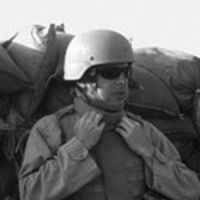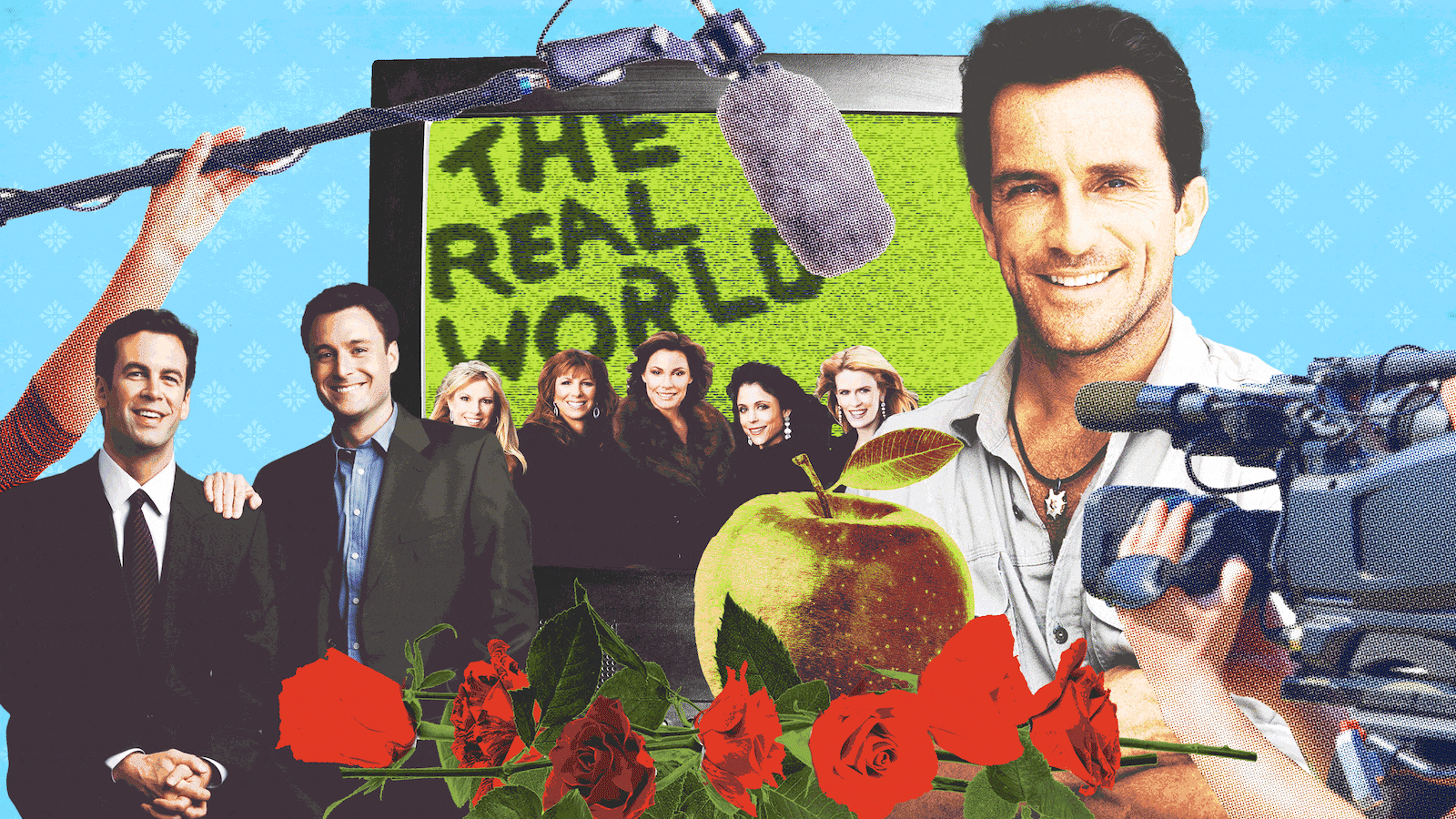Fair or not, “reality television” is still that grungy catch-all term, television’s version of Circus Circus compared to “Prestige TV’s” Bellagio. Circus Circus survives in Las Vegas by serving a specific audience, and the hustling, striving, lying, scheming stars and creators of reality programming do the same.
And no book has better illuminated more than eight decades of the groundbreaking genre’s fun, infuriating, and poignant creation until the arrival this week of Cue the Sun: The Invention of Reality TV, by former New Yorker television critic Emily Nussbaum.
“This is a scrappy group of hardworking people who are funny and provocative, and part of this colorful, wild subculture,” Nussbaum tells The Daily Beast. “A lot of people want to wash their hands of it. Oh ‘reality,’ it’s shocking, it’s titillating, who cares.”
“This industry showed people who had never been on television, and issues about sexuality or divorce that had never been on television,” the Pulitzer Prize-winning critic continues. “There are also all these grubby things. I do not underplay them, but the inventiveness is there.”
Through hundreds of interviews and sources, Cue the Sun narrates the stories of idealistic participants and “experimental-documentarians-slash-pirates,” who partnered to create often-exploitative adventures with a chance at a kind of fame.
The genre’s low-class reputation lingers from the early 2000s. Survivor had presented hard-earned drama, but soon came lesser efforts like Joe Millionaire and The Swan. Still, by 2024, any regular television viewer has encountered at least one show that qualifies as a form of “reality,” be it Project Runway or Duck Dynasty, Joe Schmo, Southern Charm—or the genre’s scripted descendants like The Office or Abbott Elementary.
Everyone’s experienced it, even if some viewers turn up their noses as they turn to the channel.
“If you watch these shows, you should value the people who create them,” Nussbaum says of her many interviewees, who are well aware of the sometimes deserved reputation of their industry. “Some are disgusted, some are proud, but I wanted for them to tell their stories in their own voices.”
Nussbaum experimented with different narrative structures as she organized the book, and decided a straightforward approach would lend her subject a deserved gravitas.
“I think people know certain elements,” of the reality genre, she explains. “But it’s not really dealt with as meaningful history. To do that, I needed to go chronologically.”
Nussbaum doesn’t start in 2000 with Survivor, or 1973’s PBS documentary An American Family, but in the 1930s, and the Original Good Will Hour hosted by John J. Anthony. The nationwide radio show—“thrilling because it is life parading before the microphone,” proclaimed advertisements—featured desperate guests describing problems and pleading for solutions. Anthony was “The Dr. Phil of his era,” Nussbaum writes. One man’s on-air psychiatric evaluation enabled him to join the Navy.
The Good Will Hour is evidence that ‘reality’ programming existed as soon as mass media needed cheap entertainment to fill each hour. Why pay writers and a cast, a producer would have realized, when the rubes will come to us?
“It was invented as a budget gambit to produce inexpensive content,” without strong labor protections, Nussbaum said. “Whether the 1940s, ’70s, or ’90s, that’s the basis of the whole thing.”
She also links shows like Candid Camera and Chuck Barris’ The Gong Show to the reality genre: Come and play, but exposure is the only reward. Viewers don’t sympathize when it’s regular people like themselves suffering misadventures, rooting instead for the three-card-monte dealer against a mark, appreciating the sinister production.
“It’s this puritanical idea,” that fame-seekers deserve what they get, Nussbaum said. But especially among early participants, “the people I talked with had a high level of innocence and idealism. They bought into what the shows wanted to do.”
Take The Real World, which premiered on May 21, 1992, and purported to tell the “true story” of “seven strangers” chosen to live together, but quickly began to embrace the sort of narrative manipulation that has only escalated in the decades since.
“During a meeting with the cast,” Nussbaum writes that production “warned the group that MTV had found an early cut of the footage boring—and they told everyone that they should expect… some surprises, to spark some more drama.”
“You’re fucking with reality,” one crewmember warned about the strategy, which creator Jon Murray called “throwing pebbles in a pond.”
Over the objections from many of the crew, production planted a book in the cast’s loft apartment, Bear Pond, which featured a photo of cast-member Eric Nies “full-frontal naked, as he took a cautious step through a forest, like some hunky innocent in Eden,” Nussbaum writes. The goal was to “ignite a flirtation or maybe a fight—either one was fine,” with production.
The blow up went the other direction. The cast was not furious at each other, but rather at production partners Jon Murray and Mary-Ellis Bunim.
It’s not clear if Nies cared about the photo, or the cast just didn’t appreciate a naked photo of a new friend appearing in the living space without warning. Production stopped until cast and producers reached an agreement to stop the most overt manipulation.
Had they held up filming for longer, or quit, or even been fired, “reality” history—and the future treatment of participants—might have been different. A similar revolt also bubbled up during the first season of Big Brother in 2000, when the cast debated walking out in “ethical protest.” In both cases, the casts bent to the show—a negotiation, some give-backs, but not much, Nussbaum writes. The outcomes solidified production’s control. By the time The Bachelor debuted in 2002, it was just business as usual.

In 2015, the scripted drama UnREAL presented an exaggerated version of The Bachelor, with an unhinged producer squeezing the emotions from tired and stressed participants. As Cue the Sun relates, it was barely fictionalized. Bachelor producer Sarah Shapiro told Nussbaum that “the worst question is the best question. ‘So, you love dick?’ or ‘So, you’re like, gay?’ An irate, defensive response could be spun into sound bites in a way more rational dialogue could not,” Nussbaum writes.
“Standards and Practices forbade anyone from writing any of the show’s dialogue,” Nussbaum reports, but Shapiro and other producers could get them to say it. Do “a little puppeteering,” as Bachelor producer Ben Hatta, and “it was like, I got her to say that. You created television!’”
Discussions of reality television often come with the qualifier that it’s not that serious. But producers try hard to keep control and limit payouts, so they sure take it seriously. Cue the Sun’s judgment-free scope makes the genre feel serious for readers. Memories are poignant, even if faces are forgotten.
Names rise up from long ago—Kelly Wiglesworth, the intense and decent white-water rafter who lost to Richard Hatch in Survivor’s first season, or Allen Funt, the dark visionary who pioneered the art of humiliation on Candid Camera, or Pedro Zamora, Gen-X’s unstoppable hero of The Real World.
About Survivor’s first season, Nussbaum says, “I wanted to explain how they made this thing, on a very low budget, from scratch, creating a story so powerful that even the people making it were blown away. That to me is a gripping story.”
“I know people will ask, ‘Where’s my favorite show?’” Nussbaum predicts. There’s a little Real Housewives, for example, but no Vanderpump Rules. In her first book, I Like to Watch, Nussbaum included a 2016 essay about Vanderpump, writing “When you believe you’re the show’s romantic lead, it’s extra-hideous to realize you’re the dupe in a low-rent sex comedy.” It referred to Stassi Schroeder, but in 2024 it explains Vanderpump’s Ariana Madix’s drive to succeed beyond her portrayal as nothing more than a scorned girlfriend.
Nussbaum first started thinking about writing Cue the Sun all the way back in 2003 when modern “reality TV” was still in its nascent stage. Despite that early curiosity, despite foreseeing the genre’s cultural impact, despite her “nerdy” private habit of watching midnight live streams of sleeping Big Brother contestants, Nussbaum never envisioned that stardom for herself.
She claims to have never imagined tackling the genre from the inside, whether on a Road Rules adventure, or finagling an appearance on Real Housewives of New York, maybe as sidekick to former Housewife and fellow journalist Carole Radziwill.
“No, no, no. I do not want to be on a reality show,” she said. “I’m a control freak and an emotional person, and I could be easily manipulated by any of these hardworking producers who know how to draw out an emotional response. I have so many other terrible impulses, I’m glad I was spared this singular impulse to take my drama and flaws and place them on television.”






